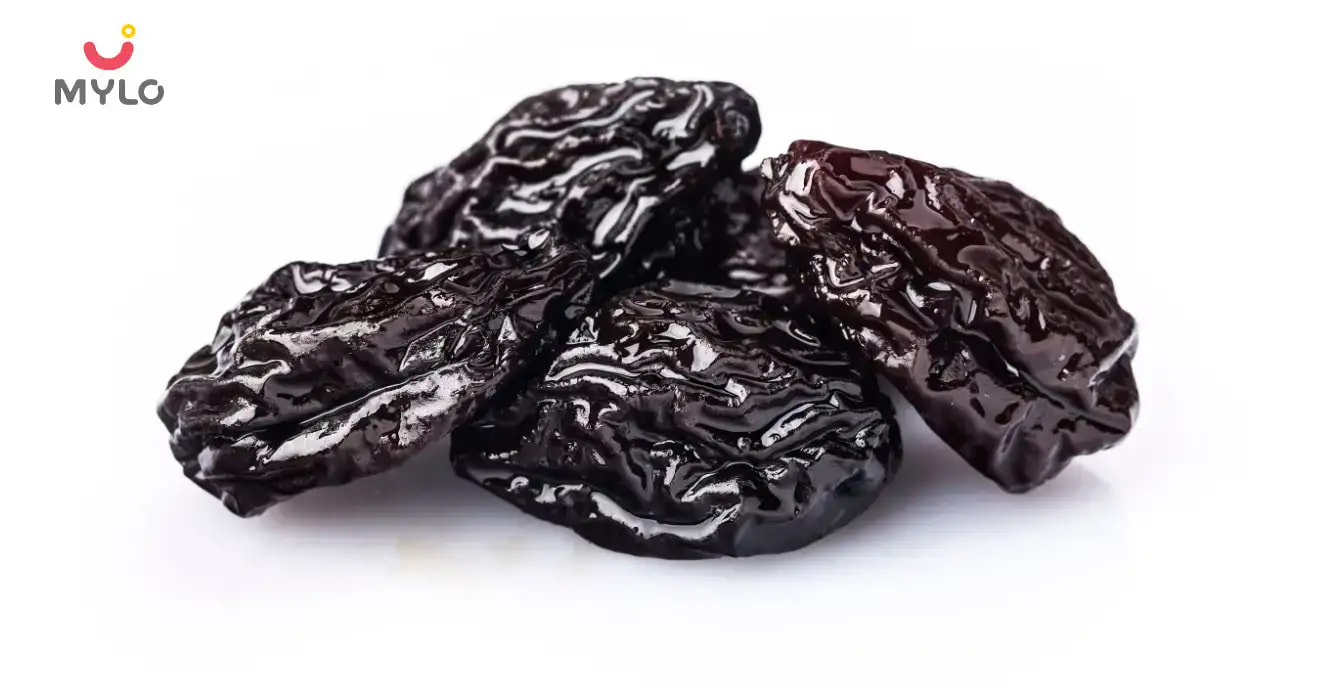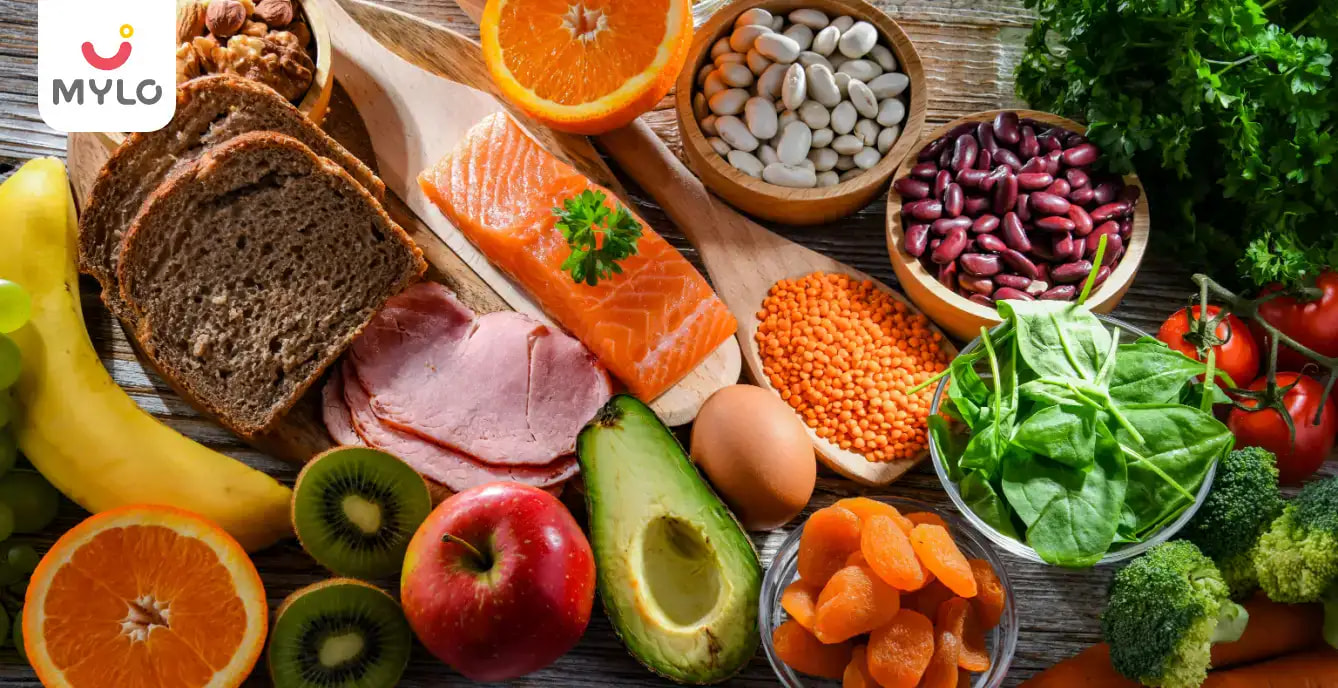Home

Vitamins & Supplements

Can Herbal Supplements Boost Your Chances of Getting Pregnant?
In this Article
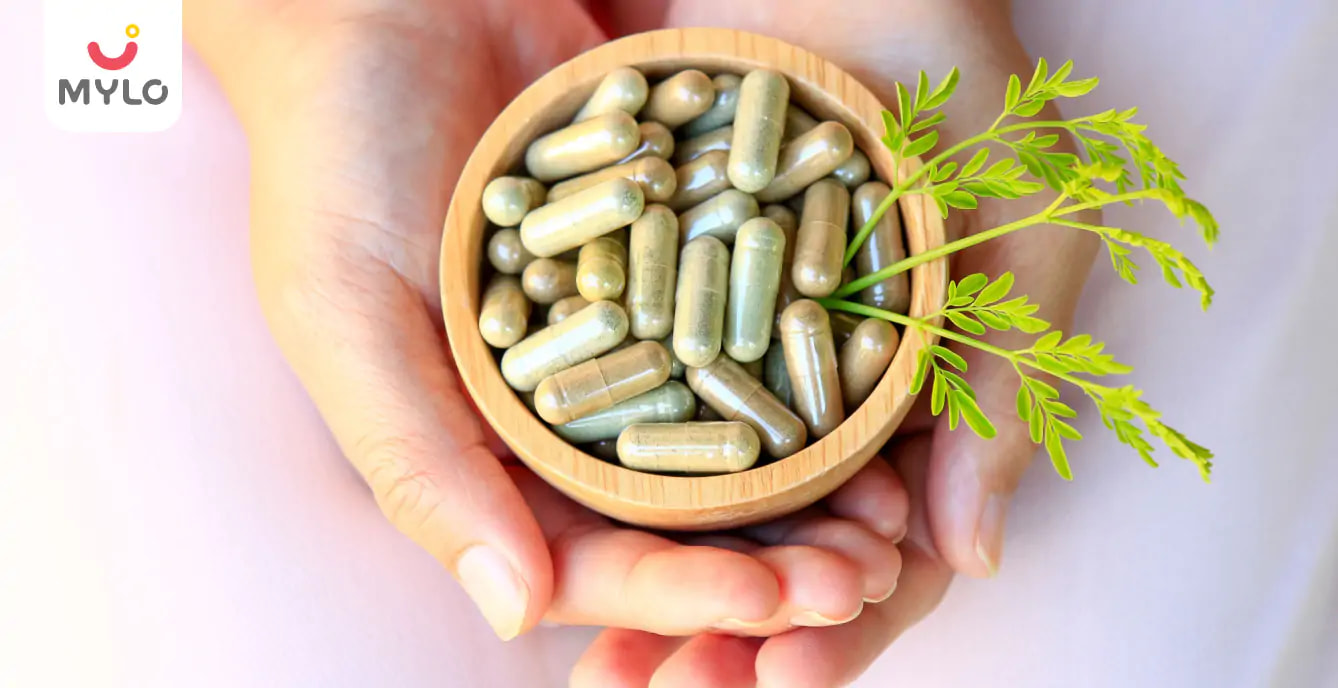
Vitamins & Supplements
Can Herbal Supplements Boost Your Chances of Getting Pregnant?
Updated on 18 January 2024



Medically Reviewed by
Kusum Sabharwal
Obstetrician & Gynecologist - MBBS| DGO
View Profile

When it comes to starting a family, many couples face challenges in conceiving. In their quest to increase their chances of getting pregnant, some turn to herbal supplements. Herbal fertility supplements have gained popularity as a natural and alternative approach to fertility. These supplements are derived from plants and herbs that have been used for centuries for various health purposes.
In this article, we will explore the role of herbal supplements in boosting fertility, discuss common supplements known to boost fertility and their effectiveness and how to choose the right supplements to increase one’s chances of getting pregnant.
What is the role of herbal supplements in boosting fertility?
Herbal supplements for fertility are believed to enhance reproductive health by balancing hormones, improving ovulation, and increasing sperm count and quality. These supplements contain natural ingredients that have been traditionally used to address fertility issues.
They are often rich in vitamins, minerals, antioxidants, and phytonutrients that support reproductive health. By addressing nutritional deficiencies and promoting hormonal balance, herbal supplements aim to create an optimal environment for conception.
It is important to note that herbal supplements are not a magical solution for infertility. They should be seen as a complementary approach alongside a healthy lifestyle, proper nutrition, and medical guidance.
While some couples may experience positive results with herbal supplements, others may not see any significant changes. It is crucial to consult with a healthcare professional before starting any herbal supplement regimen to ensure it is safe and appropriate for individual circumstances.
You may also like: How to Increase Fertility in Women and Men: The Ultimate Guide
Common herbal supplements for increasing chances of getting pregnant
Several herbal supplements are commonly used to boost fertility, such as:
1. Vitex agnus-castus
Also known as chasteberry, it is a popular herb that is believed to regulate hormone levels and promote regular ovulation. It is often recommended for women with irregular menstrual cycles or luteal phase defects.
2. Shatavari
Also known as Asparagus racemosus, it is considered an effective herbal supplement for boosting fertility. It supports the production of luteinizing hormone, which triggers ovulation and regulates menstrual cycles, thus aiding in conception.
3. Maca Root
Maca Root is believed to support hormonal balance, improve libido, and enhance overall fertility. Maca root is often consumed in powder form and can be added to smoothies or taken as a capsule.
4. Ashwagandha
Ashwagandha is known to improve male fertility by boosting testosterone levels, increasing sperm counts, semen volume, and sperm motility
5. Fenugreek
Studies have shown that fenugreek extracts may significantly increase testosterone levels, strength, and fat loss in men.
These herbal supplements can be found in various forms such as teas, tinctures, capsules, and powders.
You may also like: 8 Natural Herbs to Boost Fertility: Your Guide to Ayurveda's Best Kept Secrets
Research and studies on the effectiveness of herbal supplements
According to scientific research, herbal supplements have been linked to potential improvements in fertility for both men and women. However, there is still a need for further investigation in this area, as the findings are often conflicting or inconclusive.
A recent research article in the Journal of Human Reproductive Sciences revealed that the combination of three herbs, namely Ashwagandha, Safed Musli, and Tribulus Terrestris, had a positive impact on semen quality and male fertility among a cohort of males suffering from low sperm count.
Despite the optimistic results, it is crucial to approach herbal supplements with care and keep in mind that they should not be used as a substitute for professional medical advice and treatment.
Common ingredients in supplements that boost fertility
The fertility supplements have a bunch of ingredients that serve a unique purpose:
-
Zinc
-
Selenium
-
Omega-3s
-
Iron
-
Folic Acid
-
Vitamin-E
-
Vitamin-D
-
Coenzyme Q10
-
Calcium
-
B Vitamins
-
Acetyl L-carnitine
-
N-Acetyl Cysteine
-
Myoinositol
-
Dehydroepiandrosterone
-
Vitex Agnus Castus
-
Amino Acids
-
Antioxidants
Women looking to boost their fertility can also try Mylo Care’s Ovaluna Female Fertility Capsules, which are an effective blend of fertility-boosting ingredients like CoQ10, L-methyl folate, zinc, Vitamin D2, Vitamin B12 and Shatavari, among others. These ingredients are known to improve egg health and development, maintain hormonal balance, prevent fertility complications and regulate menstrual and ovulation cycles.
How to choose the right herbal supplements for fertility?
Choosing the right herbal supplements for fertility can be overwhelming, given the abundance of options available. Here are some factors to consider when selecting herbal supplements:
1. Research and quality
Look for supplements that have been scientifically researched and have a good reputation for quality and purity. Check for certifications or third-party testing.
2. Individual needs
Consider your specific fertility concerns and choose supplements that target those areas. Consult with a healthcare professional or herbalist for personalized recommendations.
3. Dosage and form
Pay attention to the recommended dosage instructions and choose a form that is convenient and suits your preferences.
4. Safety and interactions
Ensure that the chosen supplements are safe for you, considering any preexisting health conditions or medications you may be taking. Consult with a healthcare professional to avoid potential interactions.
Men looking to boost their fertility can also try Mylo Care's Potenmax Testosterone Booster Capsules that are an effective blend of Omega-3 fatty acids, Safed Musli, Ashwagandha, fenugreek and Kaunch Beej. These ingredients can help improve sperm motility and quality, increase testosterone levels, enhance physical performance and boost energy and stamina.
Integrating herbal supplements with other fertility treatments
For couples undergoing fertility treatments such as in vitro fertilization (IVF) or intrauterine insemination (IUI), integrating herbal supplements should be done under the guidance of a healthcare professional. It is crucial to inform your fertility specialist about any supplements you are taking to avoid potential interactions with prescribed medications or procedures.
In some cases, herbal supplements may be recommended as a complementary therapy to enhance the effectiveness of fertility treatments. However, it is important to remember that individual responses to these supplements may vary, and they should not replace medical interventions or professional advice.
Lifestyle changes to complement the use of herbal supplements
In addition to incorporating herbal supplements, making certain lifestyle changes can further enhance your fertility. Here are some recommendations:
1. Maintain a healthy weight
Being underweight or overweight can affect hormonal balance and fertility. Aim for a healthy body mass index (BMI) through a balanced diet and regular exercise.
2. Manage stress
High levels of stress can disrupt hormonal balance and interfere with ovulation. Practice stress-reducing techniques such as meditation, yoga, or engaging in hobbies.
3. Quit smoking and limit alcohol
Smoking and excessive alcohol consumption can negatively impact fertility. Quit smoking and limit alcohol intake to increase your chances of conceiving.
4. Eat a nutritious diet
Focus on consuming a well-rounded diet rich in fruits, vegetables, whole grains, lean proteins, and healthy fats. Stay hydrated and consider incorporating fertility-boosting foods such as leafy greens, berries, and nuts.
5. Exercise moderately
Engage in regular moderate exercise, such as brisk walking or swimming, to support overall health and fertility. Avoid excessive or intense exercise, which can disrupt hormonal balance.
Conclusion
While herbal supplements have been used for centuries to support fertility, their effectiveness and safety are still subjects of ongoing research. These supplements can be a valuable addition to a holistic approach to fertility, but they should not replace medical guidance or interventions. By combining herbal supplements with a healthy lifestyle and medical support, couples can optimize their chances of getting pregnant and embark on their journey to parenthood with hope and confidence.





Medically Reviewed by
Kusum Sabharwal
Obstetrician & Gynecologist - MBBS| DGO
View Profile


Written by
Ravish Goyal
Official account of Mylo Editor
Read MoreGet baby's diet chart, and growth tips

Related Articles
Related Questions
Influenza and boostrix injection kisiko laga hai kya 8 month pregnancy me and q lagta hai ye plz reply me

Hai.... My last period was in feb 24. I tested in 40 th day morning 3:30 .. That is faint line .. I conculed mylo thz app also.... And I asked tha dr wait for 3 to 5 days ... Im also waiting ... Then I test today 4:15 test is sooooo faint ... And I feel in ma body no pregnancy symptoms. What can I do .

Baby kicks KB Marta hai Plz tell mi

PCOD kya hota hai

How to detect pcos

Related Topics
RECENTLY PUBLISHED ARTICLES
our most recent articles
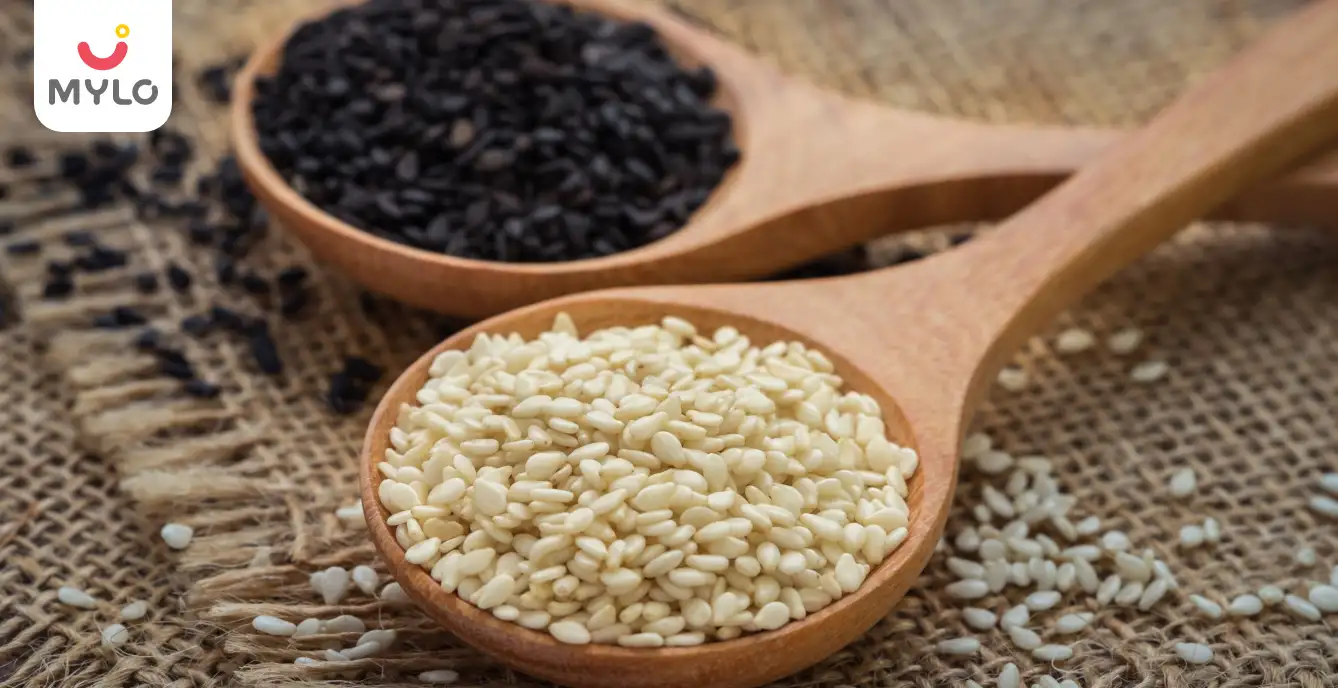
Diet & Nutrition
Sesame Seeds in Pregnancy: Nutritional Value, Benefits & Side Effects
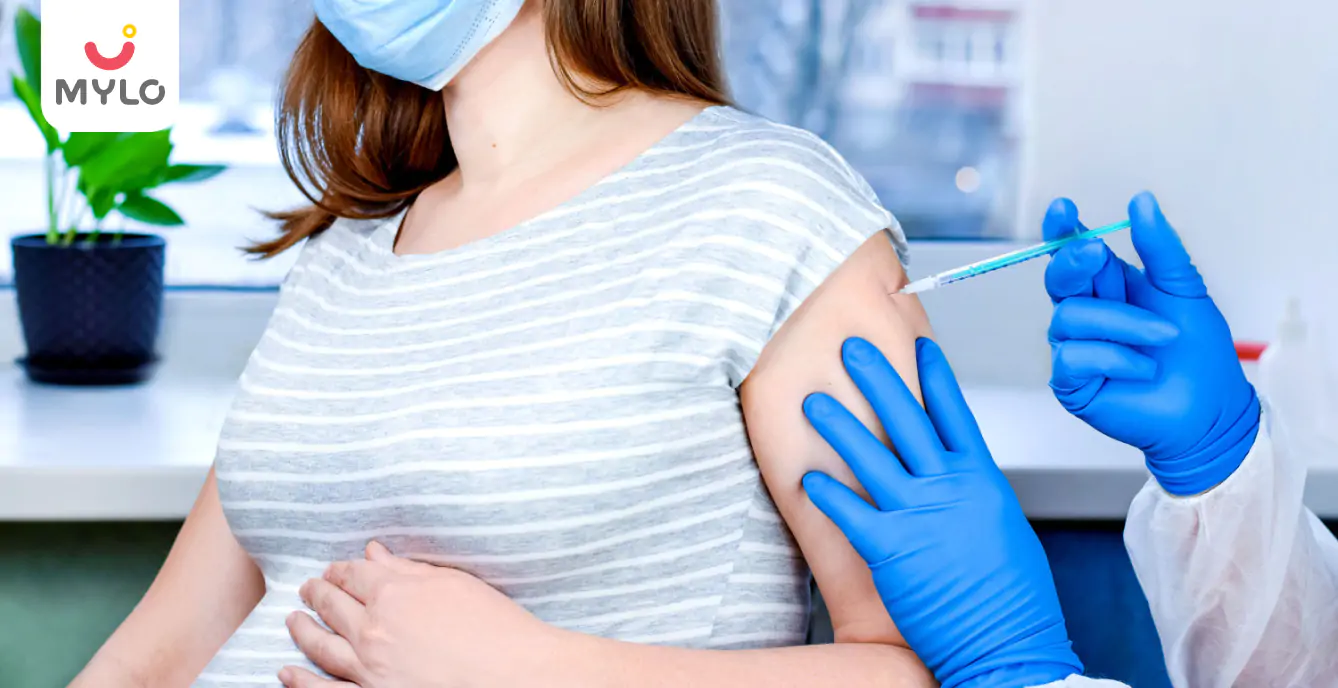
Pregnancy Complications
Betnesol Injection in Pregnancy: The Ultimate Guide to Benefits and Risks

Government Policies & Schemes
Pradhan Mantri Matru Vandana Yojana (PMMVY) to Give Rs 5,000 to Pregnant Women
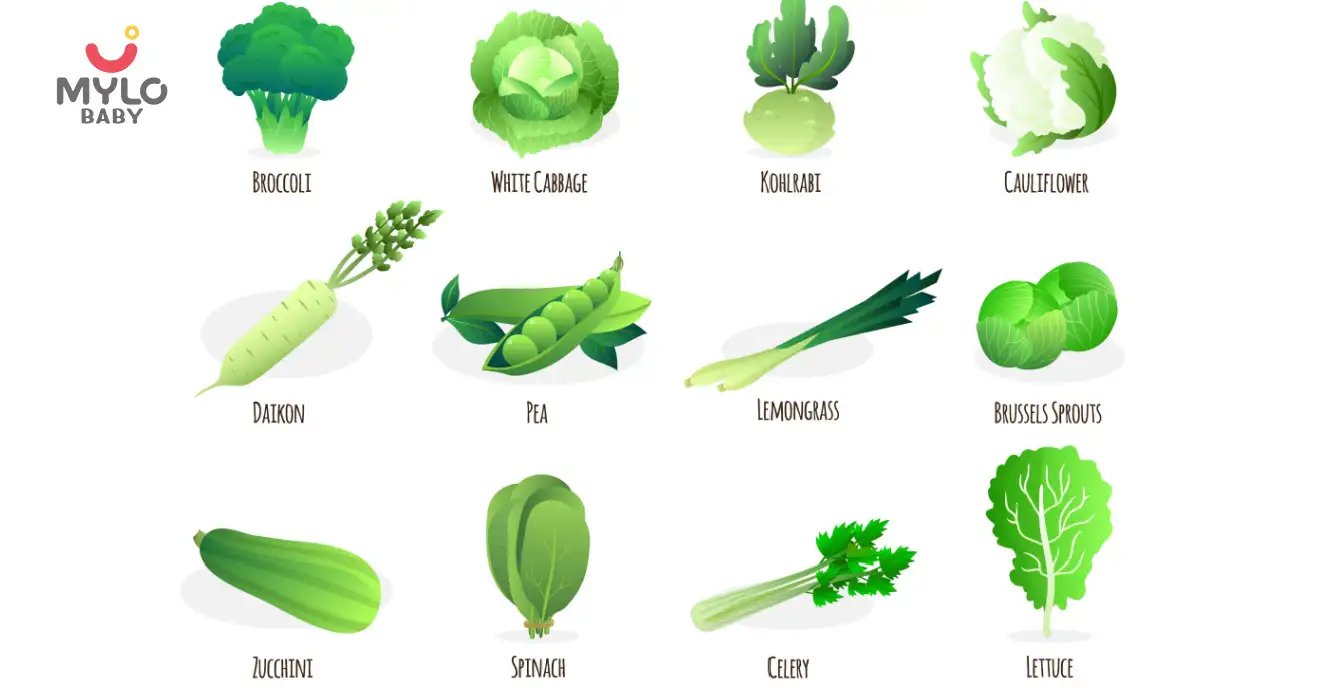
Education
The A-Z Guide to Identifying Green Vegetables Names for Kids
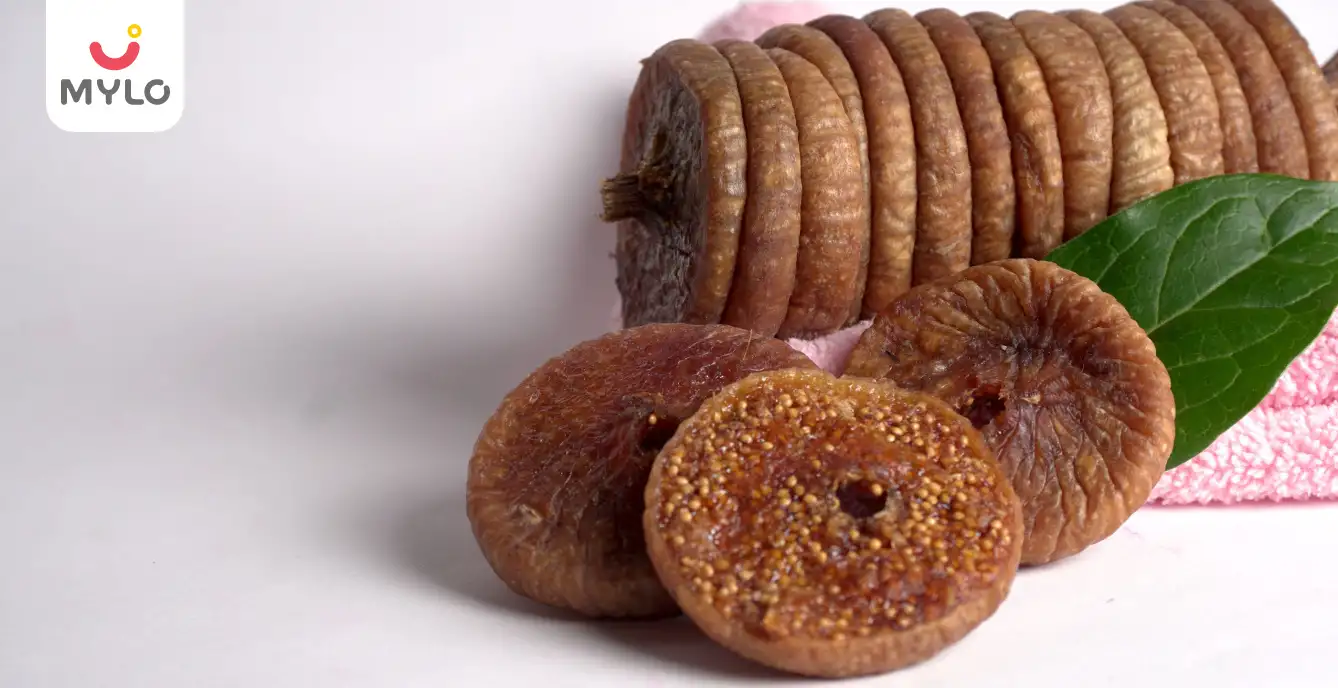
Diet & Nutrition
Anjeer in Pregnancy: Benefits & Side Effects of Eating Figs

Pregnancy Best Foods
Black Grapes During Pregnancy: Benefits & When to Avoid
- The Ultimate Guide to the Best Series on Hotstar- Hindi
- The Ultimate Guide to Teaching Children Tables 1 to 20
- Thought of the Day for Kids to Spark Imagination & Positivity
- 100 Thought of the Day to Brighten and Motivate Young Minds
- Orange in Pregnancy: Health Benefits, Side Effects & Precautions
- Radish in Pregnancy: Benefits and Safety Precautions
- Top 10 Pakistani Dramas That Will Keep You Hooked
- New Born Baby Astrology: What Does Your Baby's Zodiac Sign Say About Their Personality
- Pelvic Pain: Causes, Symptoms and Treatment Options
- Brown Discharge: Causes, Symptoms and When to Seek Help
- Baby Hair Style: A Complete Guide for Trendy Parents
- Breast Pain During Ovulation: A Comprehensive Guide on Causes and Solutions
- PCOS Ultrasound: What to Expect During the Procedure
- Uterus Didelphys: Understanding Symptoms, Risks and Treatment Options


AWARDS AND RECOGNITION

Mylo wins Forbes D2C Disruptor award

Mylo wins The Economic Times Promising Brands 2022
AS SEEN IN

- Mylo Care: Effective and science-backed personal care and wellness solutions for a joyful you.
- Mylo Baby: Science-backed, gentle and effective personal care & hygiene range for your little one.
- Mylo Community: Trusted and empathetic community of 10mn+ parents and experts.
Product Categories
baby carrier | baby soap | baby wipes | stretch marks cream | baby cream | baby shampoo | baby massage oil | baby hair oil | stretch marks oil | baby body wash | baby powder | baby lotion | diaper rash cream | newborn diapers | teether | baby kajal | baby diapers | cloth diapers |





